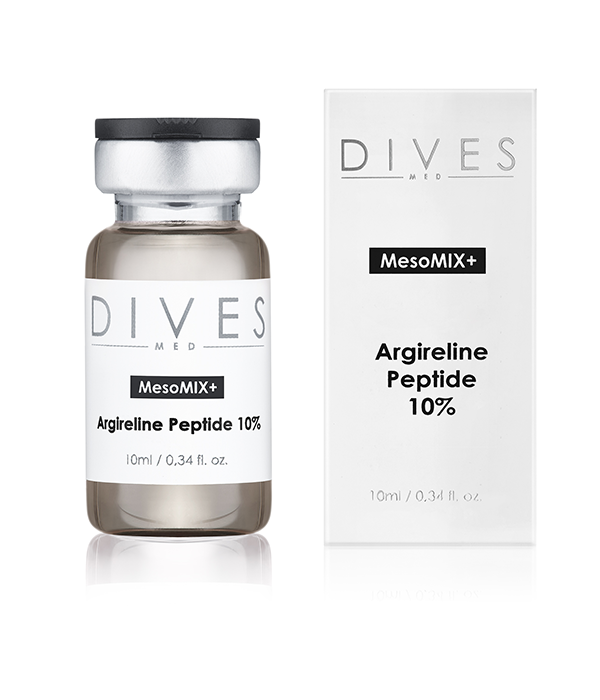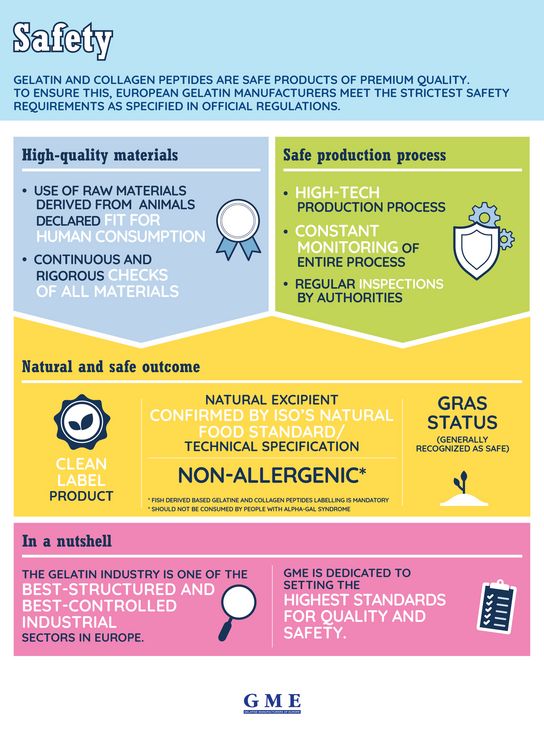Unlocking the Power of Peptides
Peptides, composed of short chains of amino acids, play crucial roles in various biological processes. Their impact on cellular functions has made them a focal point in both scientific research and consumer interest. This heightened attention stems from their diverse applications in medicine and cosmetics, with the potential for significant advancements.
In medicine, peptides are valued for their precision and specificity, making them ideal candidates for therapeutic interventions. They can target diseases at a cellular level, acting as messengers to influence processes like hormone regulation and immune responses. As researchers continue to explore their mechanisms, peptides hold the promise to transform treatment protocols.
The cosmetic industry is also leveraging peptides for their ability to improve skin health by promoting collagen production and enhancing skin elasticity. This scientific approach to skincare offers promising solutions for combating the signs of aging and maintaining youthful skin. The dual functionality of peptides in therapeutic and cosmetic applications highlights their innovative potential.

Image source: Source
Ongoing research and development are expanding our understanding of peptides, paving the way for new and exciting applications. This dynamic landscape keeps peptides at the forefront of scientific inquiry and commercial interest, underscoring their growing importance.
For more detailed insights into the types, applications, and benefits of peptides, you can refer to this resource from WebMD.
Discovering the Types of Peptides
Peptides are versatile molecules with diverse roles in biological processes, often categorized into signaling peptides, antimicrobial peptides, and hormonal peptides. Each type serves distinct functions in both physiological and therapeutic contexts.

Image source: Source
Signaling peptides are critical for cellular communication, acting as messengers that influence numerous bodily functions. An example includes glucagon-like peptide-1 (GLP-1) receptor agonists, which are effective in managing type 2 diabetes and obesity by promoting insulin secretion and aiding glucose regulation. Their role in enhancing metabolic health is well-documented, indicating substantial therapeutic significance (source).
Antimicrobial peptides (AMPs) are a vital part of the innate immune system, exhibiting broad-spectrum activity against bacteria, viruses, and fungi. They are increasingly seen as promising candidates for novel antimicrobial therapies, particularly in addressing the global challenge of antibiotic resistance.
Hormonal peptides, such as insulin and growth hormone, regulate essential physiological processes. Synthesized and released by glands, these peptides exert systemic effects crucial for maintaining homeostasis. Their medical applications are extensive, with synthetic versions being used to treat various endocrine disorders.
Collagen peptides, although not fitting neatly into the above categories, are noteworthy for their contributions to skin and gut health. Derived from collagen, a structural protein in connective tissues, they are popular in dietary supplements for enhancing skin elasticity and joint function. Studies suggest collagen peptides improve skin hydration and elasticity, supporting their widespread use in cosmetic and wellness industries (source).
The diverse classification of peptides highlights their multifaceted roles in health and disease management. As research advances, our understanding of these molecules will continue to expand, paving the way for innovative applications in both therapeutic and cosmetic domains.
Peptides: Revolutionizing Chronic Disease and Cancer Treatments
In recent years, peptides have become crucial players in advancing modern medicine due to their versatility and effectiveness in treating various health conditions. These short chains of amino acids are reshaping the management of chronic diseases, cancer therapies, and immune system modulation.
One major breakthrough in peptide research is their application in managing chronic diseases like diabetes and obesity. GLP-1 receptor agonists, a class of peptides, have shown high efficacy in controlling blood sugar levels and aiding weight loss. Their safety and effectiveness are well-documented, making them a vital component of therapeutic strategies for these conditions. For more details, see the Diabetes Journals article.

Image source: Source
Peptides also offer promising avenues in cancer treatment. Bioactive peptides are being explored as alternative therapeutic agents, targeting cancer cells while minimizing the side effects of traditional chemotherapy. These peptides can modulate immune responses and enhance the body’s natural ability to combat cancer, showcasing their revolutionary potential in oncology. Recent studies highlight their tumor-targeting capabilities, offering new hope in cancer therapies. For further reading, explore the publication on PubMed.

Image source: Source
Moreover, peptides are impacting immune system modulation through innovative solutions like peptide-based vaccines. These vaccines are designed to stimulate specific immune responses, providing a targeted method to enhance the body’s defenses against pathogens. As new health threats emerge, peptide-based vaccines represent a promising frontier in strengthening global health security.
The expanding applications of peptides in medicine underscore their indispensable role in healthcare. Integrating peptide therapies into conventional treatments promises more precise, effective, and personalized healthcare solutions. With ongoing research and innovation, peptides are set to transform disease treatment and redefine approaches to prevention and wellness in the future.
Transforming Skincare with Peptides
Peptides have become a cornerstone in the skincare industry, primarily due to their ability to enhance skin health by promoting collagen production and improving elasticity. Collagen, a structural protein, is vital for maintaining skin firmness and smoothness. As we age, natural collagen production diminishes, leading to the development of wrinkles and sagging skin. This is where peptides come into play, acting as powerful allies in the fight against the visible signs of aging.
One of the most popular peptides in the skincare market is Argireline®. Often dubbed “Botox in a jar,” Argireline® targets expression lines, such as crow’s feet and forehead wrinkles, by inhibiting facial muscle contractions. This peptide’s unique mechanism offers a non-invasive approach to achieving smoother skin, appealing to consumers seeking alternatives to more drastic cosmetic procedures.

Image source: Source
The efficacy of peptides in skincare extends beyond just wrinkle reduction. These compounds are also known for enhancing hydration and supporting the skin barrier, crucial for maintaining overall skin integrity. By facilitating the regeneration of essential proteins, peptides help the skin retain moisture and protect against environmental stressors.
The demand for peptide-based skincare solutions continues to grow, driven by their proven benefits and the increasing awareness among consumers about advanced skincare ingredients. According to a recent report, the global market for peptide-based skincare products is expected to witness substantial growth in the coming years, reflecting their rising popularity and trust among users.
As the skincare industry evolves, peptides are set to remain at the forefront of innovation. Their versatile applications and ongoing research to harness their full potential ensure that peptides will continue to transform the way we approach skincare and anti-aging. With advancements, we can anticipate even more tailored peptide formulations designed to address specific skin concerns, opening new avenues for personalized skincare solutions.
Embracing the Benefits of Peptides
Peptides are emerging as influential agents in health and wellness, offering a wide array of benefits across various aspects of human health. While their role in enhancing skin health and muscle growth is well-documented, their potential in managing chronic diseases opens new avenues for therapeutic interventions.
In skincare, peptides stimulate collagen production, helping maintain skin elasticity and reduce signs of aging. This makes them a valuable component in many skincare products known for reducing wrinkles and improving skin texture.
Beyond skincare, peptides significantly contribute to muscle health. Research indicates that collagen peptides can improve muscle mass and strength, particularly in elderly individuals facing age-related muscle loss. These benefits underscore their importance in supporting physical fitness and vitality as we age.
Peptides also show promise in chronic disease management, notably in conditions like diabetes and obesity. Compounds such as GLP-1 receptor agonists are instrumental in managing blood sugar levels and promoting weight loss, demonstrating their efficacy and safety in chronic disease intervention. This application highlights peptides’ potential to revolutionize healthcare approaches.
Their bioactive properties are being explored for broader health benefits, including immunomodulation and cancer therapy. Peptides may enhance immune responses and target cancer cells more effectively, suggesting a pivotal role in future medical breakthroughs and offering new hope for complex health challenges.
As research progresses, the expanding potential of peptides invites further exploration into their capabilities. This ongoing inquiry promises not only to enhance current health solutions but also pave the way for innovative applications that could redefine wellness and disease management. The future of peptides is indeed promising, with their diverse benefits poised to impact both individual and public health significantly.
Understanding Peptide Safety Regulations
As peptides establish their presence across various industries, ensuring their safety is crucial. The safety of peptides is generally well-regarded, but staying updated with regulatory developments and safety evaluations is key to their safe application. The FDA plays a pivotal role in evaluating the immunogenicity and safety of peptide drugs, providing essential guidelines that help manufacturers and healthcare providers reduce potential adverse effects.
Recent regulatory frameworks highlight the importance of comprehensive clinical trials and post-market surveillance, designed to collect data on efficacy and potential side effects across diverse populations. These regulations emphasize transparency in peptide research and production, which builds consumer trust and aids healthcare professionals in making informed decisions.
In clinical use, adhering to established guidelines ensures that peptides remain a safe component of therapeutic regimens. For instance, assessing immunogenicity risks—potential immune responses triggered by peptide drugs—is a critical aspect of regulatory evaluations. This is particularly important for peptide-based therapeutics, where immune reactions can affect both efficacy and patient safety.
As the peptide industry continues to innovate, staying informed about regulatory changes will be essential. This vigilance will support the safe integration of new peptides into existing treatment frameworks and pave the way for future advancements in peptide technology. By aligning with regulatory bodies, the industry can foster a culture of safety and innovation, ensuring peptides reach their full potential in both medical and cosmetic fields.
Peptides: The Future Frontier
As we stand on the cusp of a new era in biotechnology, peptides are emerging as one of the most promising frontiers in drug discovery and therapeutic applications. This burgeoning field is characterized by rapid advancements that are poised to revolutionize medicine and offer new hope in the treatment of various diseases.
Recent breakthroughs in peptide research have led to innovative therapeutic applications. One area of interest is peptide nanozymes, synthetic peptides that mimic natural enzymes, offering the potential to perform complex biochemical reactions with high specificity and efficiency. This technology could pave the way for new treatments in areas such as cancer, where targeting specific cellular pathways is crucial. According to a study by ScienceDirect, these advancements hold promise for precise cancer therapies.

Image source: Source
Moreover, peptide-based drugs are recognized for their precision in targeting biological processes, reducing the risk of side effects associated with conventional pharmaceuticals. This precision stems from peptides’ ability to mimic natural proteins, allowing them to interact with specific receptors or enzymes in a highly controlled manner.
Looking to the future, the potential of peptides to transform therapeutic landscapes is immense. Personalized peptide therapies could be tailored to an individual’s genetic makeup, offering more effective and sustainable treatments. Such innovations would mark a significant shift towards precision medicine.
As peptide synthesis technologies advance, the development of multifunctional peptides becomes more tangible. These peptides could perform multiple therapeutic roles simultaneously, such as targeting cancer cells while also modulating the immune system to enhance the body’s natural defenses.
The potential of peptides extends beyond therapeutic applications to fields such as cosmetics and nutrition, where they could play a role in skin regeneration and muscle repair. As research continues to unfold, the versatility of peptides ensures that they will remain at the forefront of scientific innovation.
The journey into the peptide frontier is just beginning, promising groundbreaking advancements that could change the way we approach health and wellness.
Exploring the Future of Peptide Research
The field of peptide research is poised for remarkable advancements, offering new opportunities across various sectors. Peptides have already established themselves as key players in areas ranging from medicine to cosmetics, demonstrating their potential to enhance therapeutic efficacy and transform skincare. Yet, the future holds even more promise as researchers continue to explore their diverse applications.
The continuous exploration of peptides is driving innovation, leading to novel therapeutic approaches and improved safety profiles. Understanding their diverse roles and mechanisms is paramount for harnessing their full potential effectively and safely. This ongoing research is crucial, paving the way for peptides to become integral components of everyday health solutions.
As peptide technology advances, attention to regulatory frameworks and safety assessments remains essential to protect public health. Regulatory bodies, such as the FDA, play a critical role in ensuring that the benefits of peptides are maximized while minimizing potential risks.

Image source: Source
Looking ahead, the potential of peptides invites us to remain curious and engaged with their development. Each discovery brings us closer to unlocking new frontiers in health and beauty. Peptides continue to redefine the boundaries of what is possible, promising to be an integral part of our future innovations and solutions.
